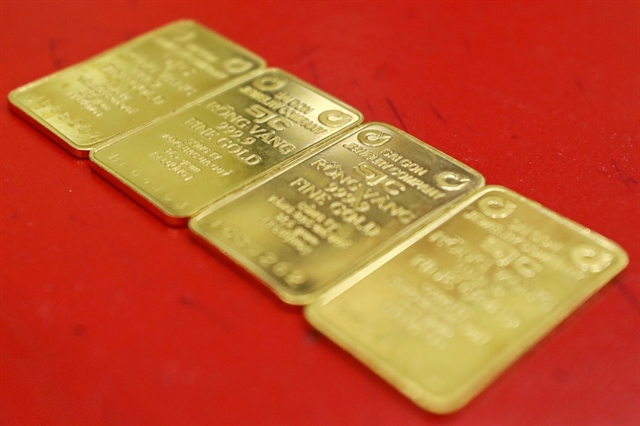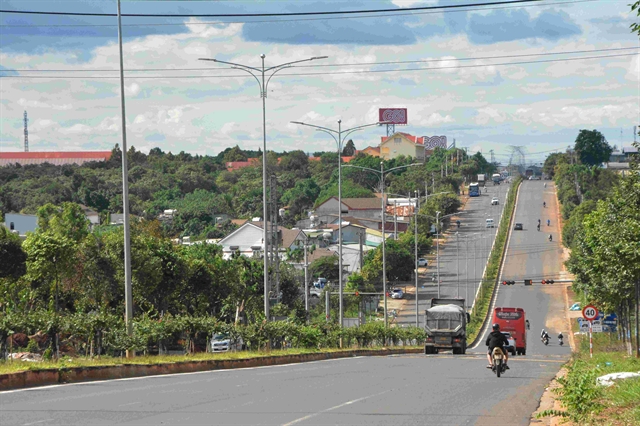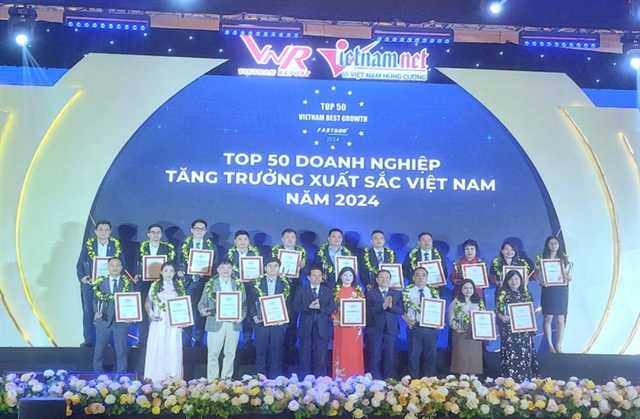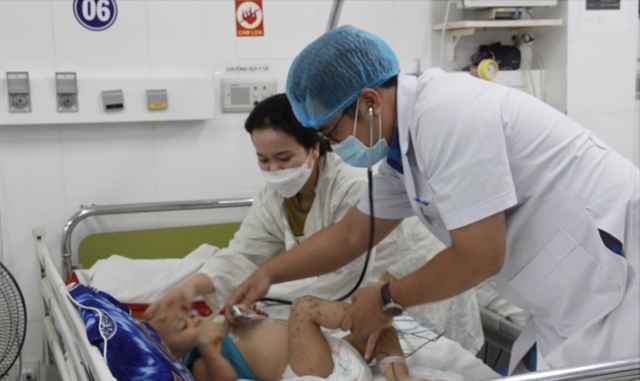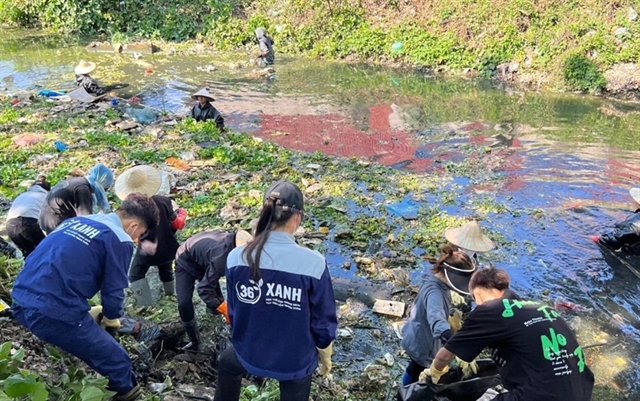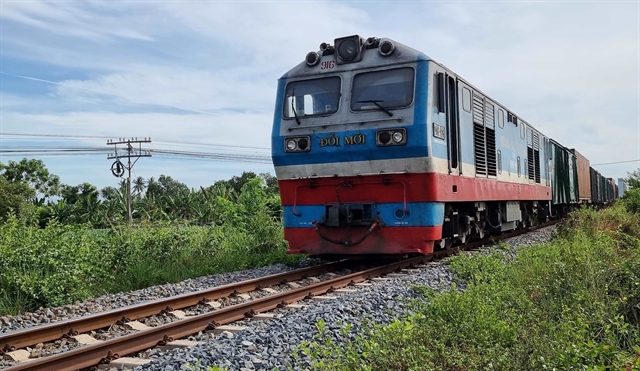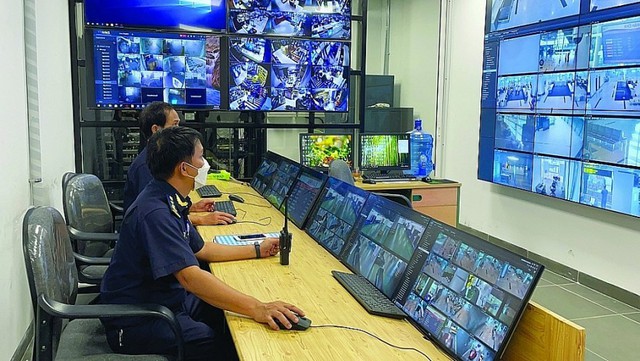 Features
Features

An idea of using a smartphone with GPS supported to detect water leakage won the first prize at the nationwide Smart Water Innovation Contest 2016, organised by the Swedish Embassy in Hà Nội.
Trịnh Quốc Anh, Nguyễn Trần Quang Khải and Võ Phi Long, who are studying at the HCM City University of Technology, are inventors of the initiative, “Reduce water leaks by a mobile device.”
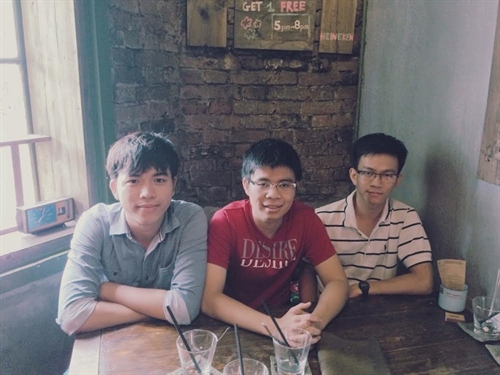 |
| From left) Võ Phi Long, Trịnh Quốc Anh and Nguyễn Trần Quang Khải are close friends who studied in the same class and often worked as a team during essays and researches. They share the same interest in science. Photo courtesy of Võ Phi Long |
by Minh Thu
If you discover water leakage at home, you can now use an app on your smartphone to call the technicians and give them directions to your home.
An idea of using a smartphone with GPS supported to detect water leakage won the first prize at the nationwide Smart Water Innovation Contest 2016, organised by the Swedish Embassy in Hà Nội.
Trịnh Quốc Anh, Nguyễn Trần Quang Khải and Võ Phi Long, who are studying at the HCM City University of Technology, are inventors of the initiative, “Reduce Water Leaks by a Mobile Device”.
They are close friends who studied in the same class and often worked as a team during essays and researches. They share the same interest in science.
The innovation came about when the team discovered a high volume of water leakage in the city’s water system in 2015, reaching up to 30 per cent of the total, compared to 3 per cent in Tokyo, 12 per cent in Sydney and 4 per cent in Singapore, according to Trịnh Quốc Anh.
Based on the statistics of the Sài Gòn Water Corporation (SAWACO), HCM City has 5,462km of water pipes in different sizes. Among them, 642km pipes which have been used for more than 30 years, are the reason for underground water leakages.
Bạch Vũ Hải, deputy general director of SAWACO, said that the company was targeting reduction in water loss rate to 28 per cent in 2020 and 25 per cent in 2025.
“In comparison to other big cities in the world, the volume of water loss in HCM City was very high,” he said.
“Who pays for the loss? Nobody but us. It is not only a waste of money but also natural resources because people in many remote areas do not receive enough clean water.”
The youngsters immediately thought of a way to solve the problem. How could the leakage be reported as soon as possible? The answer was to use smartphones.
“Smartphones have become so popular in the society so our idea could work out if it was applied to smartphones,” Long said.
“Cell phones are with you everywhere. So when you notice the water leakage, just switch on the app and report it to technicians of your building or area.”
“With only a tap on the smart phone’s screen, the building managers can identify the location of the leakage. The position of the leak will be based on Global Positioning System (GPS) co-ordinates.”
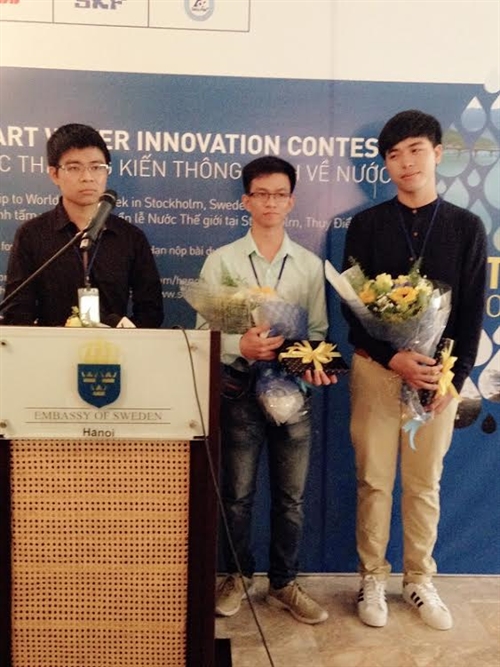 |
| A group of three students from the HCM City University of Technology delivered a speech when they are announced as winners of Smart Water Innovation Contest 2016, organised by the Swedish Embassy. — Photo courtesy of Võ Phi Long |
When a water leakage is detected and repaired, the system will mark the incident as “finished/repaired”.
“The system depends on users’ awareness and responsibilities, of course, the more people use the app, the more accurate it is,” Long said.
“Administrators should filter false alarms out. We will build up the system with priority given to the number of alerts. For example, if location A has 10 reports and location B has one, we will examine location A first.”
He stressed that the idea was to raise people’s awareness about saving water and protecting natural resources. Using this app could help people lead a responsible lifestyle.
Though the app is still on a plan, the group of three hoped that it would become a reality soon.
“Currently, we are working carefully on the project to find possible errors and ways to resolve them,” Anh said.
“An app on a smartphone needs to be upgraded frequently. We will try for funding to apply this initiative to real life. We strongly believe that we will get funding because water in particular and environment in general has now become a global concern.”
As a prize by the Swedish Embassy to Việt Nam, the group will come to Stockholm, Sweden in August to attend the annual global event World Water Week.
Swedish Ambassador to Việt Nam Camilla Mellander expected the team of Long, Anh and Khải to gain more knowledge from the event and hoped that they would continue to make significant contributions for a more sustainable world.
She stressed that no nation or society can avoid having water-related problems and that water for life is increasingly scarce now.
“Though from a different nationality, we share the same view that we could not survive without water,” she said and added that Sweden pledged to join hands with Việt Nam in managing and preserving water resources for present and next generations.
Smart Water Innovation Contest is an opportunity to seek solutions to tackle water-related challenges facing Việt Nam.
The contest hoped to generate ideas and possible products, services and solutions that contribute to the sustainable use of water.
Phil Graham, PhD, an expert on climate and water, said the idea of using smartphone to detect water leakage is simple but can be applied widely to life. The initiative expressed intelligence and creativity of the Vietnamese youth.
Meanwhile, Nguyễn Minh Khuyến, deputy director of the Department of Water Resources Management, said he was proud of the Vietnamese students.
“An idea of the students proved that they have shown responsibility to protect natural resources and they have concern for global issues. Applying technology to real life, is what we always expect from students.” — VNS


